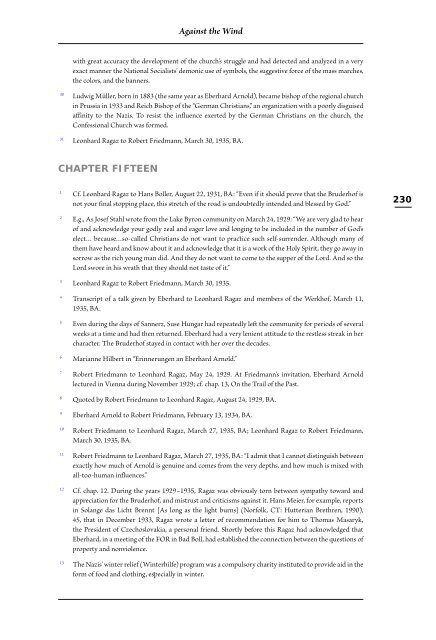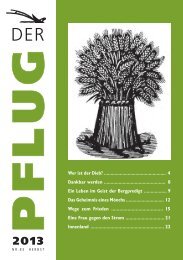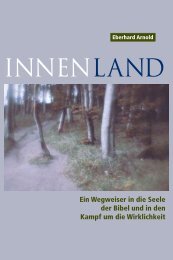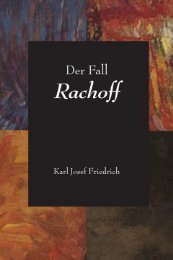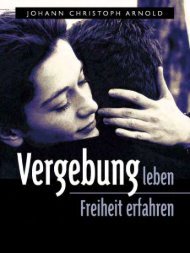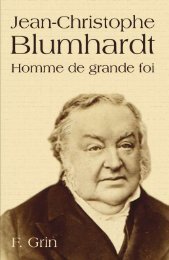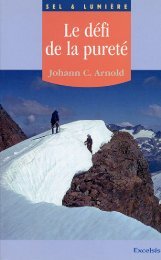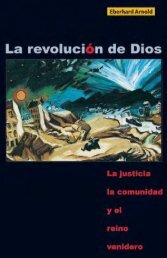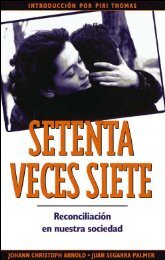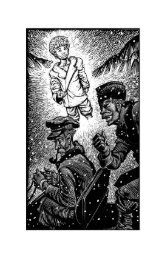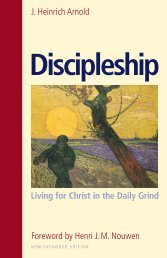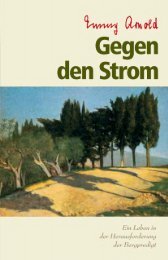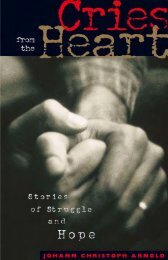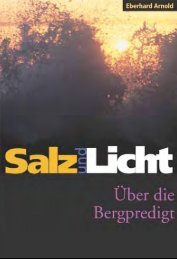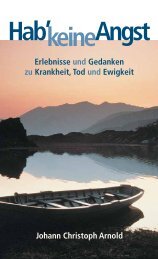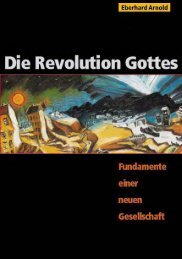Against the Wind: Eberhard Arnold and the Bruderhof - Plough
Against the Wind: Eberhard Arnold and the Bruderhof - Plough
Against the Wind: Eberhard Arnold and the Bruderhof - Plough
Create successful ePaper yourself
Turn your PDF publications into a flip-book with our unique Google optimized e-Paper software.
<strong>Against</strong> <strong>the</strong> <strong>Wind</strong><br />
with great accuracy <strong>the</strong> development of <strong>the</strong> church’s struggle <strong>and</strong> had detected <strong>and</strong> analyzed in a very<br />
exact manner <strong>the</strong> National Socialists’ demonic use of symbols, <strong>the</strong> suggestive force of <strong>the</strong> mass marches,<br />
<strong>the</strong> colors, <strong>and</strong> <strong>the</strong> banners.<br />
30 Ludwig Müller, born in 1883 (<strong>the</strong> same year as <strong>Eberhard</strong> <strong>Arnold</strong>), became bishop of <strong>the</strong> regional church<br />
in Prussia in 1933 <strong>and</strong> Reich Bishop of <strong>the</strong> “German Christians,” an organization with a poorly disguised<br />
affinity to <strong>the</strong> Nazis. To resist <strong>the</strong> influence exerted by <strong>the</strong> German Christians on <strong>the</strong> church, <strong>the</strong><br />
Confessional Church was formed.<br />
31 Leonhard Ragaz to Robert Friedmann, March 30, 1935, BA.<br />
ChaptEr fiftEEn<br />
1 Cf. Leonhard Ragaz to Hans Boller, August 22, 1931, BA: “Even if it should prove that <strong>the</strong> <strong>Bruderhof</strong> is<br />
not your final stopping place, this stretch of <strong>the</strong> road is undoubtedly intended <strong>and</strong> blessed by God.”<br />
2 E.g., As Josef Stahl wrote from <strong>the</strong> Lake Byron community on March 24, 1929: “We are very glad to hear<br />
of <strong>and</strong> acknowledge your godly zeal <strong>and</strong> eager love <strong>and</strong> longing to be included in <strong>the</strong> number of God’s<br />
elect… because…so-called Christians do not want to pracice such self-surrender. Although many of<br />
<strong>the</strong>m have heard <strong>and</strong> know about it <strong>and</strong> acknowledge that it is a work of <strong>the</strong> Holy Spirit, <strong>the</strong>y go away in<br />
sorrow as <strong>the</strong> rich young man did. And <strong>the</strong>y do not want to come to <strong>the</strong> supper of <strong>the</strong> Lord. And so <strong>the</strong><br />
Lord swore in his wrath that <strong>the</strong>y should not taste of it.”<br />
3 Leonhard Ragaz to Robert Friedmann, March 30, 1935.<br />
4 Transcript of a talk given by <strong>Eberhard</strong> to Leonhard Ragaz <strong>and</strong> members of <strong>the</strong> Werkhof, March 11,<br />
1935, BA.<br />
5 Even during <strong>the</strong> days of Sannerz, Suse Hungar had repeatedly left <strong>the</strong> community for periods of several<br />
weeks at a time <strong>and</strong> had <strong>the</strong>n returned. <strong>Eberhard</strong> had a very lenient attitude to <strong>the</strong> restless streak in her<br />
characer. The <strong>Bruderhof</strong> stayed in contact with her over <strong>the</strong> decades.<br />
6 Marianne Hilbert in “Erinnerungen an <strong>Eberhard</strong> <strong>Arnold</strong>.”<br />
7 Robert Friedmann to Leonhard Ragaz, May 24, 1929. At Friedmann’s invitation, <strong>Eberhard</strong> <strong>Arnold</strong><br />
lectured in Vienna during November 1929; cf. chap. 13, On <strong>the</strong> Trail of <strong>the</strong> Past.<br />
8 Quoted by Robert Friedmann to Leonhard Ragaz, August 24, 1929, BA.<br />
9 <strong>Eberhard</strong> <strong>Arnold</strong> to Robert Friedmann, February 13, 1934, BA.<br />
10 Robert Friedmann to Leonhard Ragaz, March 27, 1935, BA; Leonhard Ragaz to Robert Friedmann,<br />
March 30, 1935, BA.<br />
11 Robert Friedmann to Leonhard Ragaz, March 27, 1935, BA: “I admit that I cannot distinguish between<br />
exactly how much of <strong>Arnold</strong> is genuine <strong>and</strong> comes from <strong>the</strong> very depths, <strong>and</strong> how much is mixed with<br />
all-too-human influences.”<br />
12 Cf. chap. 12. During <strong>the</strong> years 1929–1935, Ragaz was obviously torn between sympathy toward <strong>and</strong><br />
appreciation for <strong>the</strong> <strong>Bruderhof</strong>, <strong>and</strong> mistrust <strong>and</strong> criticisms against it. Hans Meier, for example, reports<br />
in Solange das Licht Brennt [As long as <strong>the</strong> light burns] (Norfolk, CT: Hutterian Brethren, 1990),<br />
45, that in December 1933, Ragaz wrote a letter of recommendation for him to Thomas Masaryk,<br />
<strong>the</strong> President of Czechoslovakia, a personal friend. Shortly before this Ragaz had acknowledged that<br />
<strong>Eberhard</strong>, in a meeting of <strong>the</strong> FOR in Bad Boll, had esablished <strong>the</strong> connection between <strong>the</strong> questions of<br />
property <strong>and</strong> nonviolence.<br />
13 The Nazis’ winter relief (Winterhilfe) program was a compulsory charity instituted to provide aid in <strong>the</strong><br />
form of food <strong>and</strong> clothing, esecially in winter.<br />
230


